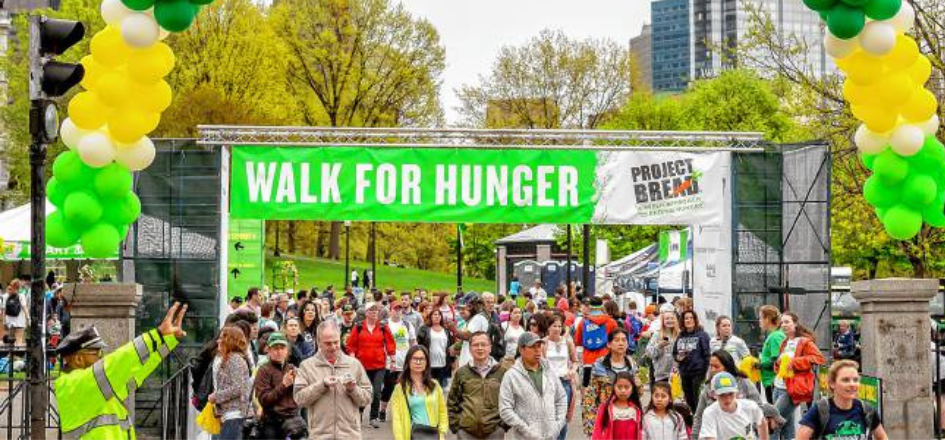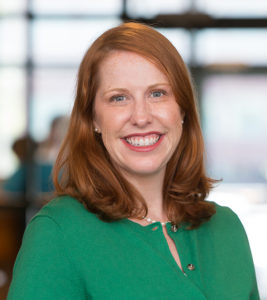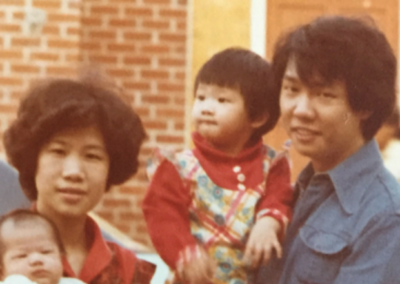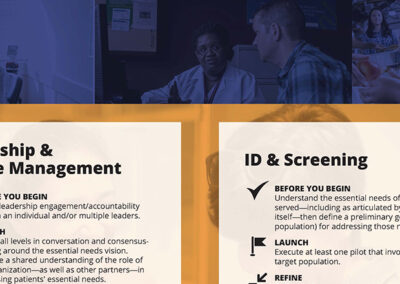“Hunger is a Solvable Problem”: An Interview with Project Bread President Erin McAleer

We recently had the pleasure of sitting down with anti-hunger advocate Erin McAleer, President of Project Bread — a Health Leads ‘Champion of Change’ and leading nonprofit working to advance a food-secure future in Massachusetts. You can register or donate here.

HL: How did you find yourself working at Project Bread? If you had to pick two words to describe your current role, what would they be? Why?
Erin: I’m a social worker by training and spent most of my career in government. I’d just finished working in Governor Deval Patrick’s office and knew I wanted my next job to be working for a non-profit in systems-change and policy solutions. I saw the job at Project Bread – and it was my dream job. Not only did it meet my professional desires, but I know intimately what it means to be food insecure. I experienced food insecurity in my childhood, and I know what it means to not be able to afford healthy food and see a parent stressed about not being able to feed her child. I believe in the magnitude of the issue, but I also believe in the solution.
I’d pick advocate and storyteller because I see it as my duty to advocate for others, by telling their stories and amplifying the voices of people who are traditionally not given a microphone or platform.
HL: How do you apply your social work experience in your position?
Erin: First and foremost, people are drawn to social work because they believe in social justice and leveling the playing field by addressing social inequities. So in my work, my social work education always helps ground me in the mission. It gives me the perspective that we are not merely serving communities, but we are working with communities to develop solutions together. My social work education has been helpful, being an advocate in understanding how to read people and understanding individuals with lived experience.
HL: What is the most satisfying part of your job?
Erin: What drives me is when I get out in the community and see the impact we have. It’s so rewarding. When I see how many kids get fed during the summer with the Summer Eats Program (nearly 60,000 kids a day), I’m reminded of the importance of our work. Of course this impact is shared with others – the Boys and Girls Club, the YMCA and public schools – but it is what drives me to create more opportunities for the greatest number of people.
HL: You’ve had a vibrant career as a social worker, operating in a lot of different settings from government to nonprofits. What was the moment you realized how important social determinants — or food insecurity, specifically — are to our overall health?
Erin: I’d go back to my mom being a single mother. What’s most indelible about that time was my mom’s stress. I remember her being on the phone with my aunt saying, “I don’t know how I’m going to feed these kids.” And I saw the toll that stress took on her health. Food is the most basic of human needs, and when that need is not met, there is so much impact on the human body, from the health of the physical body, to mental health. And I felt how that stress affected the health of our whole household.
HL: What are the most exciting initiatives or partnerships (current or upcoming) you have underway at Project Bread?
Erin: We really are excited about our partnership with Health Leads and the Family Health Center of Worcester. We’re so glad that the healthcare community has acknowledged that food insecurity is a social determinant of health. Hunger is often the underlying issue to so many other health problems. Just knowing that and then being able to connect people to food resources is huge.
HL: What have you found to be the biggest barrier to achieving food security in Massachusetts (or more broadly)?
Erin: The biggest barrier is the awareness about the existence of food insecurity. It’s not something you can identify by just looking at someone, and the issue is so stigmatized that people are afraid to admit that they are food insecure. We don’t know if our friends or co-workers are food insecure, because we’re not talking about it. We need awareness about the existence of it, so those who struggle can be aware about the solutions. Food insecurity is an issue that needs and deserves our attention.
HL: Many hospitals and health systems are funding projects that directly address food and housing insecurity. Others focus on helping patients connect with groups on the ground that provide those services. As a critical community organization in Boston, what does an effective partnership with a healthcare system look like? How do those partnerships empower communities? How should communities be at the center of those partnerships?
Erin: An effective partnership with the healthcare system is one where the healthcare system relies on organizations like Project Bread, which already has a relationship with communities, rather than developing their own system. Hospitals and health systems already turn to us when a patient screens as food insecure, and we’d love to continue working together to put communities at the center.
HL: We loved your article in WBUR about the shutdown’s impact on SNAP benefits. Do you see the increasing partisan divide as a barrier to achieving health equity, especially food security? How can we work across partisan lines to make sure that more people and families aren’t hungry? What more can federal, state and local governments do? What can citizens do?
Erin: One of my first jobs was working in Mitt Romney’s Budget Office where I was tasked with enrolling more individuals in SNAP because enrollment was so low. That wasn’t that long ago! And it wasn’t a partisan issue then, and it shouldn’t be now. People need to eat. It’s the most basic of human needs. Kids can’t focus at school if they don’t have food in their bellies, adults can’t focus on working or trying to find work if they are hungry. I don’t know how we get back there, other than citizens strongly advocating for each other by actively working to make sure that anti-hunger efforts are always on policy agendas. We need to address it together. Raise awareness. Speak up. Urge your policy makers to eliminate hunger by investing in programs that help give people more access to healthy food.
HL: Ideally, what does Project Bread look like in five years? How would you like to see the relationship b/w CBOs and health providers evolve in that time?
Erin: We’d like to strengthen our partnership with the healthcare sector and evolve what we’re doing to meet their needs and meet the needs of communities and individuals. The community and individual must always be at the center, but by inviting the healthcare system in, we open the door to having more people get access to food. We’ve found that people are more likely to share that they are food insecure when the question comes from their physician, because it’s a non-stigmatizing environment. Someone is more likely to say, “I’m not taking my medication because I don’t have enough food.” Through our partnership, clinicians can then refer individuals to us and we can connect people with healthy food. We’d love to deepen those relationships.
HL: What do you want the world to know about the work of Project Bread?
Erin: I want people to know that hunger is a solvable problem. We have the food. We have the resources. We have the programs. But the resources and programs aren’t widely made available, and there is such a stigma associated with hunger. We need to make sure families are getting SNAP benefits if they qualify, that kids are getting access to school breakfast (only 41% of those who qualify are accessing them now), that families utilize the Summer Eats program for kids who need it (only 14% of kids that need summer lunches are accessing them). The resources are out there, but the access is blocked. We want to remove those barriers, and that can only happen when there is a systems-wide solution.
To learn more about the work of Project Bread, visit http://www.projectbread.org.




